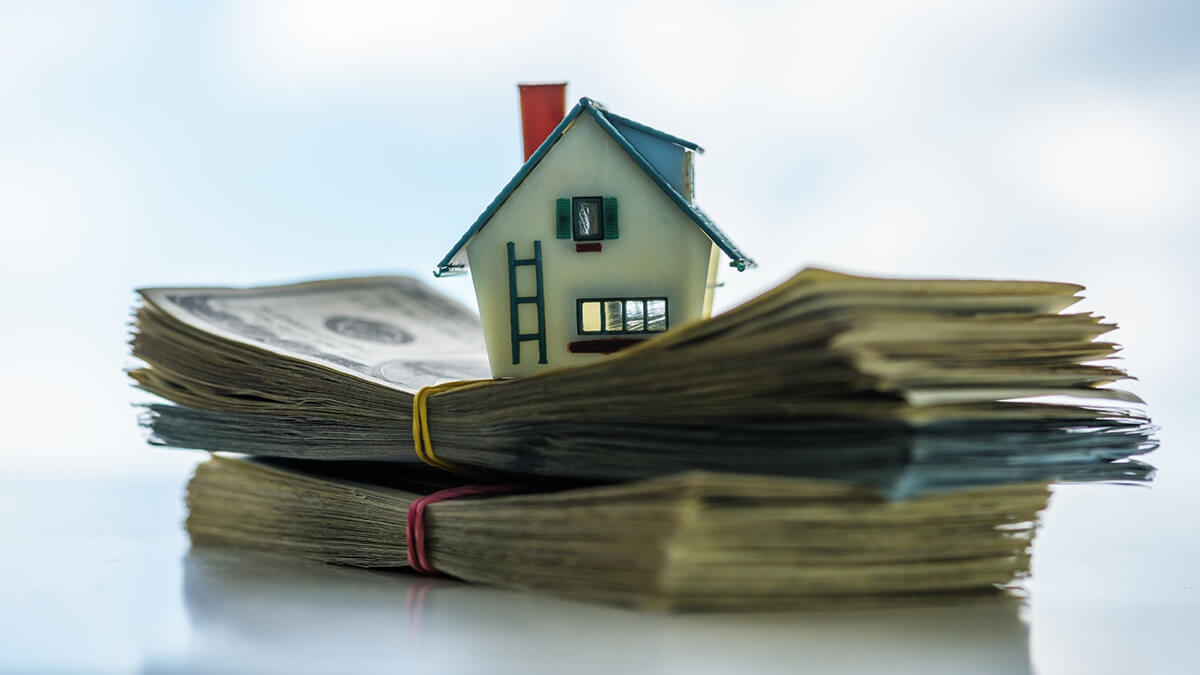Selling your home can be a pretty stressful process in some cases. In an ideal world, you would recognize the appreciated value of your home, decide that you’d like to move elsewhere with a little extra money in your pocket, put your house on the market, and it would sell immediately.
That’s the way it’s often portrayed, but the reality is that sometimes it’s a little different. The process of getting your home listed, working with a realtor, and actually accepting an offer can be time-consuming and costly.
We’re here to help you explore a few of your options. Luckily, there are ways to make the process smooth and effortless.
We’ll explore a number of options, also answering the question “how much does it cost to sell a house?”
Let’s get started:
How Much Does It Cost To Sell a House?
The answer to this question is probably about as complicated as the answer to “how long does it take to get a job,” or, “is parenting right for me?”
The cost of selling your home is dependent on a number of factors. There’s a lot that goes into preparing your home so that you can get the most value at closing, finding the right people to work with in order to list your home, closing costs, the costs of moving, and everything else along the way.
Selling your house is, in principle, moving your entire life along to a new phase. Not to mention all of the red tape and paperwork that goes along with the process.
Before you rest your head on the pillow of your new home, there are a lot of expenses that have to take place.
Those expenses will vary depending on your situation, but there are some trends in expenses that you can expect. We’re going to take a look at three different ways that you could potentially sell your home.
All three come with different pros and cons. Let’s get started.
Selling a Home with iBuyer
iBuyer is a service that helps you get your home exposed to the market of potential buyers in your area. Additionally, iBuyer seeks to make the process of selling your home as easy as it possibly can be.
The first benefit of iBuying is an algorithm that helps you clearly understand how much potential buyers are likely to pay for your home. This estimate is based on a great deal of historical information from previous purchases and home values in your area.
Interested in your home’s current market value? Receive a free online home value estimate!
When you get an estimate that makes sense and seems right to you, we send that estimate along with information about your home out to a network of interested buyers. Those buyers will then examine your listing and bid against each other to purchase your home.
This is an excellent way to increase the sale value of your home because it forces individuals to bid higher and higher until there is someone at the end who offers to pay more than anyone else. In this way, you receive the highest possible amount for your home based on consumer demand.
If you should accept an offer, iBuyer helps work with you to take the following steps and wind up closing on your sale.
This process is extremely affordable in comparison to other methods that we’ll discuss next.
Selling By Yourself
Selling a home by yourself is another option that might be able to save you a little money.
When you decide to sell your home on your own, you don’t need to adhere to the closing costs and commissions that real estate agents charge. This is an excellent way to sell a home if you’re familiar with a person who is interested in buying your home from you before you list it.
For example, your best friend wants to buy your home and you’re ready to move, it wouldn’t make much sense to pay someone to market and sell the home for you.
You’ll also save money if the buyer doesn’t have an agent that needs to be paid commissions. It’s also beneficial to sell your home on your own in some instances because you can dictate the terms of the sale and you don’t have to adhere to the opinions or ideas of the real estate agent they’re working with.
At the same time, going through the process by yourself has some pitfalls.
Negative Aspects of Selling Yourself
The first factor that stands out as a negative is the fact that most first-time sellers don’t know the legalities or the standard process of selling a home. There are certain things that need to get done to transfer a home to another person legally.
Additionally, it’s difficult to find potential buyers if you don’t work through some kind of service. If you know of a person that wants to buy your home, this negative factor doesn’t apply to you.
If, on the other hand, you just want to sell the home by yourself, there are a couple of things to keep in mind.
First, the listing spaces that many homebuyers browse on are sometimes accessible only to licensed agents. Second, you might not get as much value from the sale as you would if you worked with a service like iBuyer.
It’s tough to know how much to list your home for, even with a decent appraisal. There are various market factors that influence how people buy homes, what will work, and what will not. First-time sellers also tend to be inexperienced in the way of negotiation, and that can wind up hurting you.
You should also be aware that you’ll still have to pay the buyer’s agent’s commission fees. So, at the end of the day, you might wind up saving money on commissions and closing costs, but the total value of your home might not stack up at the sale price.
You might also find that it takes a lot longer to get your home off of the market if you don’t have access to large pools of potential buyers, and your expenses will rack up as the house sits.
Selling with a Real Estate Agent
Working with an agent is the way that most people go about selling their homes.
Agents can help you access potential buyers, prepare your home for sale, and work with you on the various things that need to happen for the sale to go through.
This makes the process simple for you, and the agent takes a lot of the responsibility into their own hands. At the same time, unloading the responsibility on the agent comes at a price.
Real estate agents will ask for a percentage of the selling price. That usually stacks up to somewhere around 6 percent of your selling price. Depending on your home, that could be anywhere from $6,000 to $100,000.
It all depends on the value of your home. There are additional closing costs and the fee that’s attributed to the buyer’s agent if they have one.
What About The Other Costs Associated with Selling?
The other costs that come with selling a home are really up to your discretion. This is because they typically have to do with making improvements to the home that will increase its value and help it get off of the market.
Investing in home improvements is a great way to make a little more money when it comes to closing time. Bathroom and kitchen investments are typically ones that reap the best rewards, although there’s a whole lot that you can do before your appraisal to increase value.
Those costs will vary depending on the size of the renovation or improvement. It’s important to keep in mind, though, that most of the renovations you make to your home will increase its value.
Even small adjustments like paint color or the inclusion of a garden can make your home more appealing and help it get off of the market quicker.
When it comes to the little things, it’s important to remember that appraisals are partially influenced by opinion. The appraiser is aware of different market factors, but their opinion of the home is what determines the last bit of the value.
So, cleaning up your yard, improving the curb appeal, and arranging your furniture in a way that enhances space can all change your home’s value by thousands of dollars.
Moving Costs and More
You then have to consider how much property you own, the costs of movers in your area, and what the general expense of transferring those belongings to a new space will be.
In the grand scheme, though, be sure to weigh the moving expenses against the equity that you gained in the sale of the home. In most cases, the silver lining is that you make money after all is said and done.
Trying to Sell Your Home?
So, how much does it cost to sell a house? It depends on how you handle it.
We’re here to help you sell your home in the easiest, most cost-effective way possible. Submit your address to get started selling your home.




